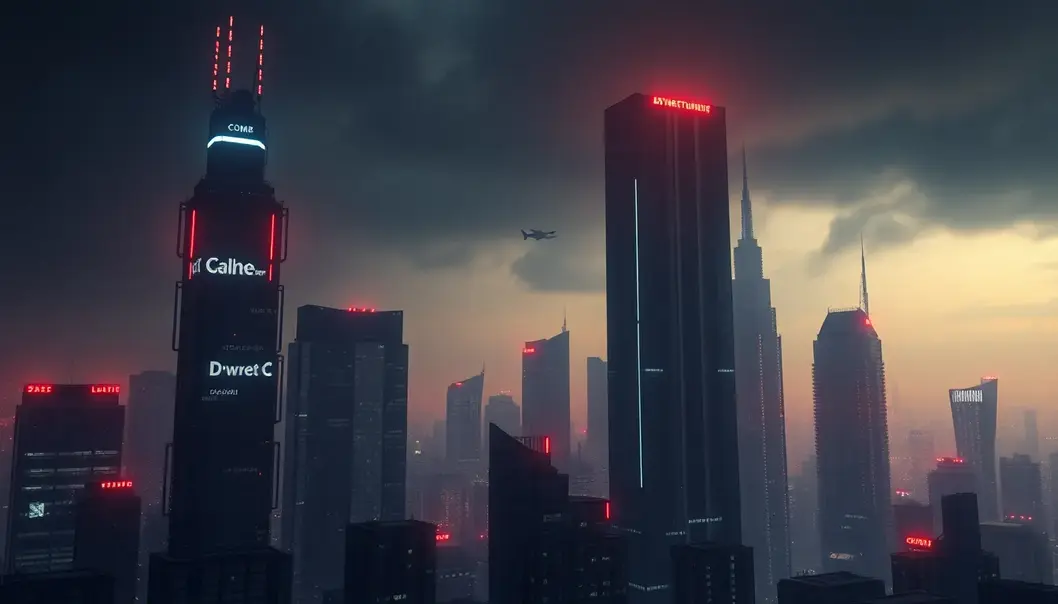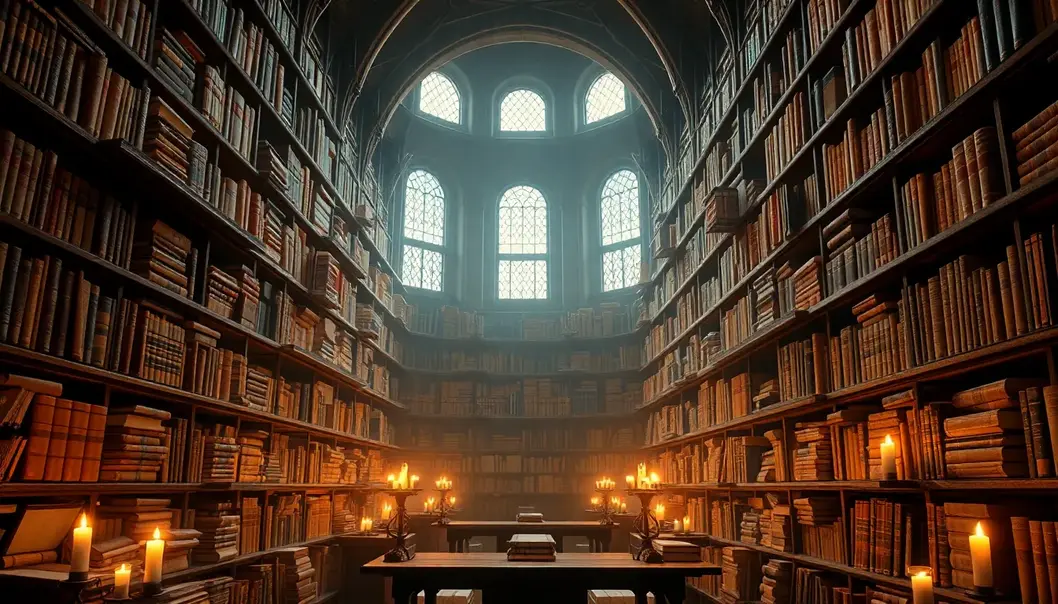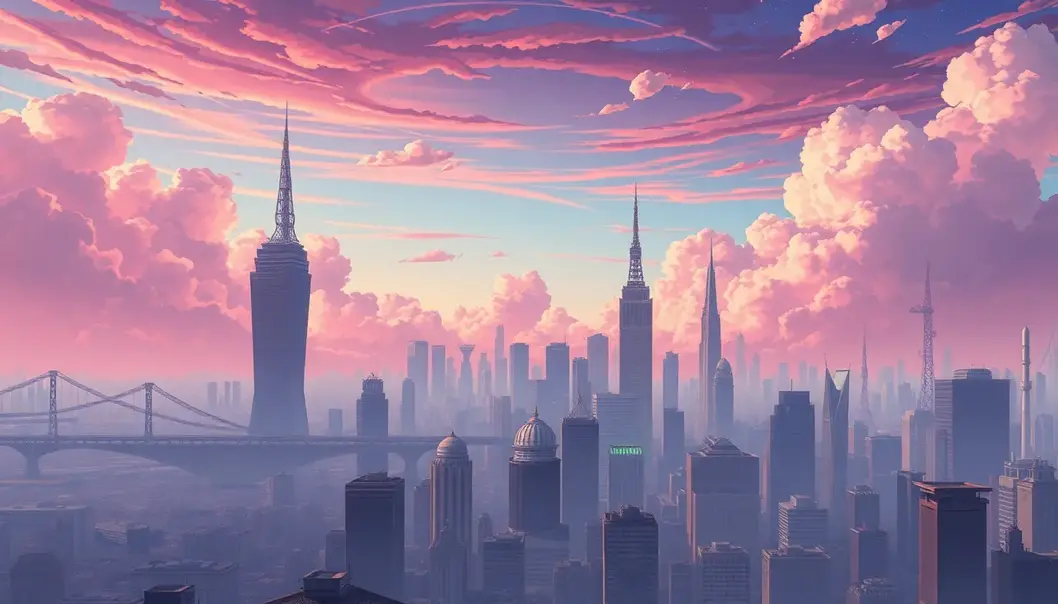From the epic battles in ‘Attack on Titan’ to the philosophical wanderings of ‘Ghost in the Shell,’ anime often makes us question the building blocks of our society. But before the animation magic, books had been shaking the societal foundations. These literary works have served as catalysts, sparking revolutions not only on pages but also in our minds. Anime fans, gear up to delve into how these prose warriors have reshaped our views on existence, power, and freedom. Whether you’re exploring Otaku culture or pondering life’s big questions, these seminal books echo themes that pulsate through your favorite anime worlds.
The Dystopian Dream: Welcome to Brave New Worlds

Dystopian literature, with its stark exploration of societal extremes, has significantly shaped our perception of power, control, and freedom. Two seminal works, George Orwell’s 1984 and Aldous Huxley’s Brave New World, invite readers into worlds where totalitarian regimes reshape humanity itself. These novels serve as powerful mirrors, reflecting the potential for authoritarianism in our own societies.
1984, Orwell’s grim portrayal, explores a society under constant surveillance, where truth is mutable, dictated by an omnipotent state. The Ministry of Truth, manipulating the past to control the future, serves as an ominous reminder of the power narratives have over reality. The concept of ‘Big Brother’ endures as a cultural shorthand for state overreach and privacy erosion, questions we continue to grapple with in the digital age.
In contrast, Huxley’s Brave New World presents a dystopia not born of overt oppression but seduction—a society that achieves control by immersing individuals in superficial pleasures and engineered happiness. The dehumanizing effects of technology, the elimination of familial bonds, and the commodification of human emotions unfold as a chilling vision of a future where choice and individuality are sacrificed at the altar of stability.
Much like these literary landscapes, anime frequently explores dystopian themes, offering alternate realities where authoritarian systems and identity crises proliferate. Series like Attack on Titan and Neon Genesis Evangelion engage with the nuances of power and freedom, drawing parallels with Orwellian and Huxleyan notions. Anime often dissects humanity’s morality under extremes, using fantastical elements to spotlight the human condition’s vulnerabilities.
Both forms of media question the essence of what it means to be human when personal identity and freedoms are at risk. This thematic crossover between literature and anime not only connects disparate cultures but also underscores a shared concern about the delicate balance between control and freedom. This interplay resonates with the enduring legacy of dystopian narratives, challenging us to rethink our societal choices and the structures we inhabit.
Philosophy and Freedom: The Pen is Mightier

In a world where human consciousness is limitless, philosophical literature offers a profound lens through which we explore concepts of free will and self-discovery. Works such as Plato’s The Republic and Nietzsche’s Beyond Good and Evil continue to shape our perspective on individualism and morality, acting as enduring markers in our quest for understanding.
Plato’s Republic establishes a republic’s idealized vision, where justice serves as the bedrock of society. Through Socratic dialogues, Plato delves into the nature of justice and the role of the philosopher-king. This exploration challenges readers to reflect on their notion of freedom, asking whether true liberty requires a just society where individuals fulfill predefined roles. Such profound inquiry into these societal constructs influenced generations, urging questions about governance and personal duties.
Friedrich Nietzsche’s Beyond Good and Evil presents a contrasting yet complementary narrative. Here, Nietzsche deconstructs traditional morality, advocating for a reevaluation of values driven by the ‘will to power.’ Nietzsche’s work empowers individuals to transcend societal norms, promoting an existential quest for personal truth. His philosophy encourages embracing chaos as a path to self-realization, drawing parallels with existentialist themes that mirror the human struggle for meaning.
Interestingly, these philosophical cornerstones resonate in modern anime narratives. Series that tackle the essence of the self and the weight of moral choices echo philosophical literature’s influence. For example, storytelling in certain anime grapples with existential questions, reminiscent of Nietzsche’s challenge to traditional morality, where protagonists confront innate desires against societal expectations. These animated narratives illustrate the complexities of choice and fate, paralleling Plato’s ideals of a harmonious yet structured society.
Anime often dramatizes the philosophical ‘self’ quest by situating characters in dilemmas that necessitate a deep moral introspection. Whether navigating dystopian futures or complex social hierarchies, characters frequently face the intrinsic conflict between predetermined roles and the desire for autonomous identity. This dynamic is reflective of the philosophical dialogues in The Republic, where Plato’s ideal state serves as both a prison and a forge for true selfhood.
The echo of these philosophical giants in anime underscores how cross-cultural lenses can reinterpret ancient discussions around morality and freedom. Both mediums articulate a timeless discourse: the ceaseless journey towards selfhood and autonomy in a world endlessly shifting under the weight of ideologies and philosophies. While literature and animation differ in form, they converge in their aspiration to redefine society through the prism of individual perspective and consciousness.
Final words
These books have not only cracked open new realms of thought but also weaved threads that anime intricately follows. Whether through dystopian narratives or philosophical musings, literature has been the forge where societal paradigms have bent and reformed. For anime fans, it’s thrilling to see how these themes resonate within your favorite shows, adding layers to every storyline. Engage with these books and let them challenge your perspective—just as anime so often does.
Uncover new worlds by reading these books and discover how they mirror your favorite anime themes. Start your literary journey today!
Learn more: https://example.com/explore-books
About us
Our platform connects devoted readers with a curated library of influential books that resonate with the themes found in anime. Explore our vast collection, enhanced with discussions and analysis designed for passionate anime fans.

